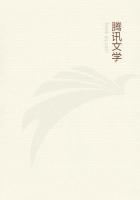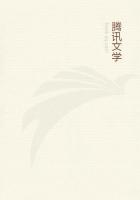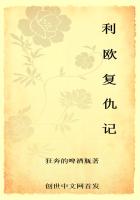After I had been all over the castle, so long Casanova's home, I was taken to Count Waldstein's study, and left there with the manuscripts. I found six huge cardboard cases, large enough to contain foolscap paper, lettered on the back: 'Grafl. Waldstein-
Wartenberg'sches Real Fideicommiss. Dux-Oberleutensdorf:
Handschriftlicher Nachlass Casanova.' The cases were arranged so as to stand like books; they opened at the side; and on opening them, one after another, I found series after series of manuscripts roughly thrown together, after some pretence at arrangement, and lettered with a very generalised description of contents. The greater part of the manuscripts were in Casanova's handwriting, which I could see gradually beginning to get shaky with years. Most were written in French, a certain number in Italian. The beginning of a catalogue in the library, though said to be by him, was not in his handwriting.
Perhaps it was taken down at his dictation. There were also some copies of Italian and Latin poems not written by him. Then there were many big bundles of letters addressed to him, dating over more than thirty years. Almost all the rest was in his own handwriting.
I came first upon the smaller manuscripts, among which I, found, jumbled together on the same and on separate scraps of paper, washing-bills, accounts, hotel bills, lists of letters written, first drafts of letters with many erasures, notes on books, theological and mathematical notes, sums, Latin quotations, French and Italian verses, with variants, a long list of classical names which have and have not been 'francises,' with reasons for and against; 'what I must wear at Dresden'; headings without anything to follow, such as:
'Reflexions on respiration, on the true cause of youth-the crows'; a new method of winning the lottery at Rome; recipes, among which is a long printed list of perfumes sold at Spa; a newspaper cutting, dated Prague, 25th October 1790, on the thirty-seventh balloon ascent of Blanchard; thanks to some 'noble donor' for the gift of a dog called 'Finette'; a passport for 'Monsieur de Casanova, Venitien, allant d'ici en Hollande, October 13, 1758 (Ce Passeport bon pour quinze jours)', together with an order for post-horses, gratis, from Paris to Bordeaux and Bayonne.'
Occasionally, one gets a glimpse into his daily life at Dux, as in this note, scribbled on a fragment of paper (here and always I
translate the French literally): 'I beg you to tell my servant what the biscuits are that I like to eat; dipped in wine, to fortify my stomach. I believe that they can all be found at Roman's.' Usually, however, these notes, though often suggested by something closely personal, branch off into more general considerations; or else begin with general considerations, and end with a case in point. Thus, for instance, a fragment of three pages begins: 'A compliment which is only made to gild the pill is a positive impertinence, and Monsieur Bailli is nothing but a charlatan; the monarch ought to have spit in his face, but the monarch trembled with fear.' A manuscript entitled 'Essai d'Egoisme,' dated, 'Dux, this 27th June, 1769,' contains, in the midst of various reflections, an offer to let his 'appartement'
in return for enough money to 'tranquillise for six months two Jew creditors at Prague.' Another manuscript is headed 'Pride and Folly,' and begins with a long series of antitheses, such as: 'All fools are not proud, and all proud men are fools. Many fools are happy, all proud men are unhappy.' On the same sheet follows this instance or application:
Whether it is possible to compose a Latin distich of the greatest beauty without knowing either the Latin language or prosody. We must examine the possibility and the impossibility, and afterwards see who is the man who says he is the author of the distich, for there are extraordinary people in the world. My brother, in short, ought to have composed the distich, because he says so, and because he confided it to me tete-'a-tete. I had, it is true, difficulty in believing him; but what is one to do! Either one must believe, or suppose him capable of telling a lie which could only be told by a fool; and that is impossible, for all Europe knows that my brother is not a fool.
Here, as so often in these manuscripts, we seem to see Casanova thinking on paper. He uses scraps of paper (sometimes the blank page of a letter, on the other side of which we see the address) as a kind of informal diary; and it is characteristic of him, of the man of infinitely curious mind, which this adventurer really was, that there are so few merely personal notes among these casual jottings. Often, they are purely abstract; at times, metaphysical 'jeux d'esprit,'
like the sheet of fourteen 'Different Wagers,' which begins:
I wager that it is not true that a man who weighs a hundred pounds will weigh more if you kill him. I wager that if there is any difference, he will weigh less. I wager that diamond powder has not sufficient force to kill a man.
Side by side with these fanciful excursions into science, come more serious ones, as in the note on Algebra, which traces its progress since the year 1494, before which 'it had only arrived at the solution of problems of the second degree, inclusive.' A scrap of paper tells us that Casanova 'did not like regular towns.' 'I like,'
he says, 'Venice, Rome, Florence, Milan, Constantinople, Genoa.'
Then he becomes abstract and inquisitive again, and writes two pages, full of curious, out-of-the-way learning, on the name of Paradise:
The name of Paradise is a name in Genesis which indicates a place of pleasure (lieu voluptueux): this term is Persian. This place of pleasure was made by God before he had created man.
It may be remembered that Casanova quarrelled with Voltaire, because Voltaire had told him frankly that his translation of L'Ecossaise was a bad translation. It is piquant to read another note written in this style of righteous indignation:

